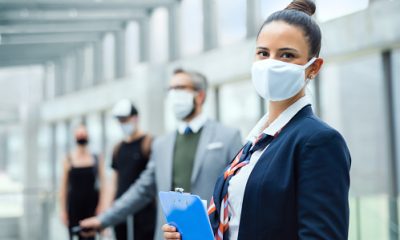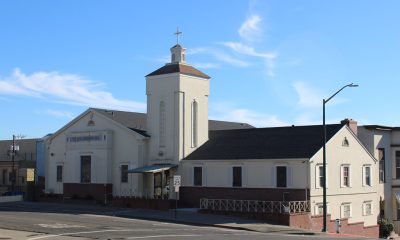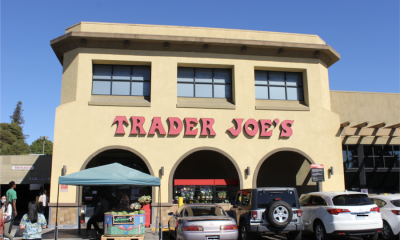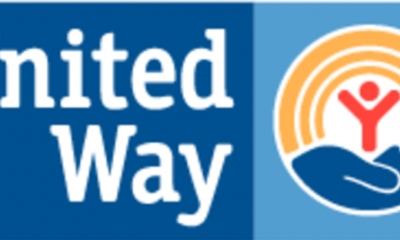Coronavirus
Select Safeways in San Joaquin County Offering COVID-19 Vaccinations
The pharmacy and health teams at Albertsons Companies, the parent company of Safeway, began administering its first doses of the COVID-19 vaccine last month and is preparing for high consumer demand for immunizations through a broad series of measures—including hiring additional pharmacy staff nationwide, launching a new website with important information for the public, and maintaining high safety standards in its pharmacies and stores.

Two Safeway pharmacies in Stockton will be offering COVID-19 vaccinations.
They are available by appointment only.
Currently, available vaccines are limited to individuals in Phase 1A- Tiers 1,2,3 and people aged 65 years and older at this time.
Visit SJReady.org for additional information.
The pharmacy and health teams at Albertsons Companies, the parent company of Safeway, began administering its first doses of the COVID-19 vaccine last month and is preparing for high consumer demand for immunizations through a broad series of measures—including hiring additional pharmacy staff nationwide, launching a new website with important information for the public, and maintaining high safety standards in its pharmacies and stores.
“Throughout the pandemic, customers have trusted our pharmacy teams to play a critical role in maintaining their health and wellness,” said Omer Gajial, senior vice president of Albertsons Companies Pharmacy and Health. “We are preparing and expanding our trained pharmacy teams to handle the unprecedented demand and administer the vaccine safely and efficiently to the communities we serve as it becomes available.”
Albertsons Cos. is continuing to work closely with public health authorities to target specific priority groups and identify the most logical location for administering vaccines—whether that is the pharmacy’s physical location at a grocery store or at a separate community location. The company is leveraging its deep experience with administering millions of flu and other vaccines every year to be ready to meet the needs of the communities it serves nationwide.
Vaccinations are by appointment only and the following information will be required: full name, date of birth, insurance information (if any) and employer.
You may be asked to bring the following to the appointment: photo ID, insurance card (if any), proof of employment (e.g., paystub, badge) and more.
Vaccines are being administered in two Stockton Safeway locations: 6445 N Pacific Ave. Stockton, 95207; and 2808 Country Club Blvd. Stockton, 95204.
Safeway stores in Manteca, Lodi and Tracy are also offering vaccinations.
The City of Stockton Facebook Page and Albertson Companies’ public relations team are the sources for this report.
California Black Media
Gov. Newsom and Gov. DeSantis Go Head-to-Head in Nationally Televised Debate
Conservative Fox News personality Sean Hannity moderated the duel, during which the TV pundit, more than once, injected his opinion, and appeared to be providing subtle assists to DeSantis. As the debate progressed, it was clear that opinions about each topic discussed was representative of the philosophical and political chasm that divides liberal and conservative America, and a preview of campaign mudslinging that is bound to intensify as the 2024 presidential campaign ensues.

By California Black Media
In an intense, 95-minute-plus televised faceoff between California Gov. Gavin Newsom and Florida Gov. Ron DeSantis on Nov. 30, the men traded jabs and putdowns, defended their respective gubernatorial records, disagreed sharply on how to solve the country’s most pressing problems, and expressed clashing views on the performance of the Biden-Harris administration.
Conservative Fox News personality Sean Hannity moderated the duel, during which the TV pundit, more than once, injected his opinion, and appeared to be providing subtle assists to DeSantis.
As the debate progressed, it was clear that opinions about each topic discussed was representative of the philosophical and political chasm that divides liberal and conservative America, and a preview of campaign mudslinging that is bound to intensify as the 2024 presidential campaign ensues.
“I’ll tell you why I’m here,” Newsom said. “I’m here to tell the truth about the Biden-Harris record and also compare and contrast Ron DeSantis’ record and the Republican Party’s record” with that of California.
DeSantis blasted Newsom’s management of the COVID-19 crisis and criticized Newsom for prevalent crime, homelessness and deteriorating social conditions in California cities.
“You have the freedom to defecate in public in California,” DeSantis said. “You have the freedom to pitch a tent on Sunset Boulevard. You have the freedom to create a homeless encampment under a freeway and even light it on fire. They’re not the freedoms our founding fathers envisioned.”
Newsom took a jab at DeSantis’ presidential candidacy, predicting that the Florida Governor would be endorsing GOP frontrunner Donald Trump soon.
“There’s one thing we have in common,” Newsom said. “Neither of us will be the nominee for our party in 2024.
BayCityNews
FDA Updates Approval of Pfizer Booster Vaccine for Children Under 5
The U.S. Food and Drug Administration updated its approval Tuesday of the Pfizer-BioNTech booster vaccine, making it available to some children under age 5. Before this update, children under 5 were not eligible for COVID-19 booster shots. Instead, they received three doses of the regular vaccine.
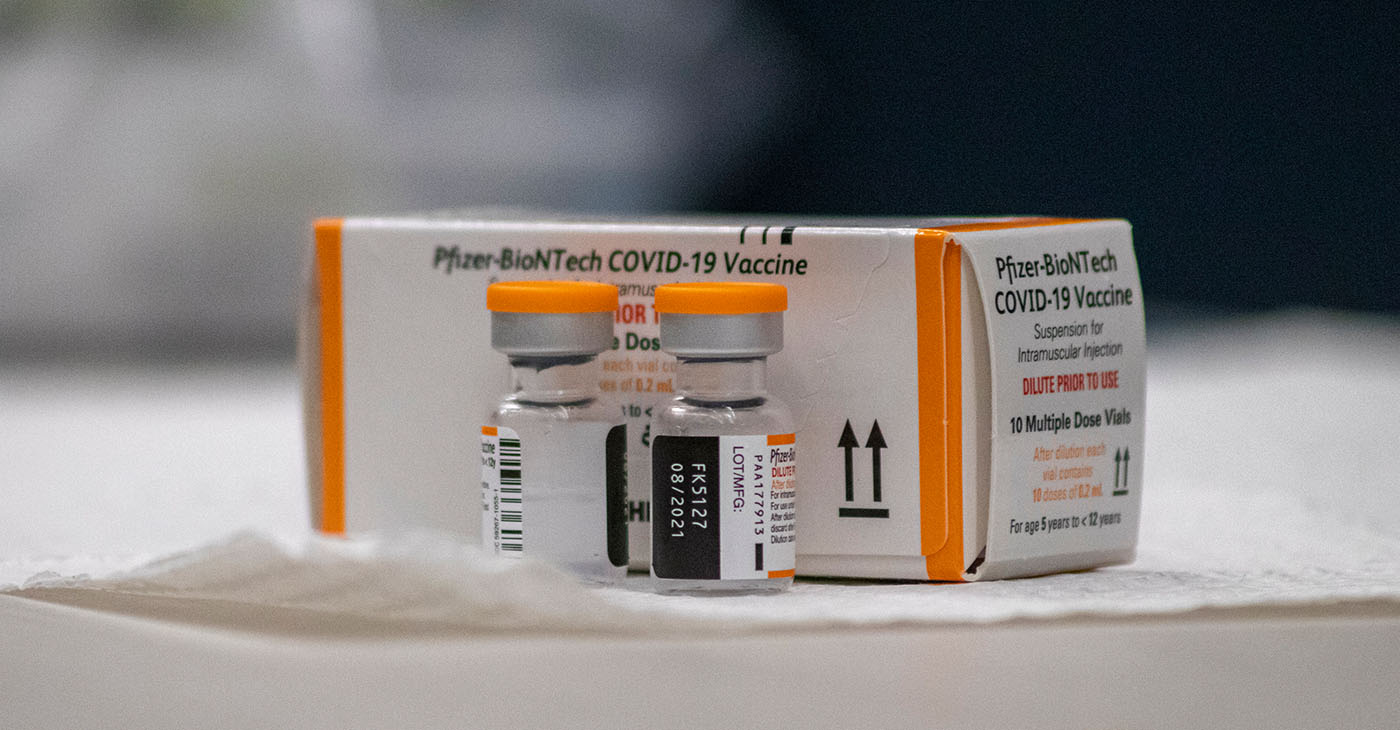
By Eli Walsh
Bay City News
The U.S. Food and Drug Administration updated its approval Tuesday of the Pfizer-BioNTech booster vaccine, making it available to some children under age 5.
Before this update, children under 5 were not eligible for COVID-19 booster shots. Instead, they received three doses of the regular vaccine.
As of December 2022, children age 4 and younger who have not been vaccinated receive the omicron variant-specific booster vaccine as the third dose in their primary vaccine series, following two doses of the original Pfizer vaccine.
However, children in that age range who completed their initial vaccination series before December 2022 only received three doses of the original Pfizer vaccine, and are less protected against more infectious variants of the virus as a result.
FDA officials updated the vaccine’s emergency use authorization Tuesday to allow those children who only received the original Pfizer COVID vaccine to receive one dose of the bivalent booster if it has been at least two months since they completed their initial series.
Other children under age 5 are not eligible for the booster, although everyone age 5 and up is eligible for a booster.
“Currently available data show that vaccination remains the best defense against severe disease, hospitalization and death caused by COVID-19 across all age groups, and we encourage all eligible individuals to make sure that their vaccinations are up to date with a bivalent COVID-19 vaccine,” said Dr. Peter Marks, the director of the FDA’s Center for Biologics Evaluation and Research.
Clinical data has found that both the original Pfizer vaccine and the booster vaccine that targets the omicron subvariants BA.4 and BA.5 are safe for everyone aged 6 months and up and effective at preventing the worst outcomes of COVID infection, including serious illness and death.
COVID vaccines are available at primary care providers, retail pharmacies and some facilities operated by local health departments.
Copyright © 2023 Bay City News, Inc. All rights reserved. Republication, rebroadcast or redistribution without the express written consent of Bay City News, Inc. is prohibited. Bay City News is a 24/7 news service covering the greater Bay Area.
Bay Area
COVID-19 Response Grant Program
The City of Union City will be issuing another round of its COVID-19 Response Grant Program. The program has distributed approximately $620,000 in grant funds and forgivable loans to the community to respond to the impacts of COVID-19 and will distribute another $322,000 through this latest round of funding. The City will utilize federal Community Development Block Grant (CDBG) and CARES Act funds.

The City of Union City will be issuing another round of its COVID-19 Response Grant Program. The program has distributed approximately $620,000 in grant funds and forgivable loans to the community to respond to the impacts of COVID-19 and will distribute another $322,000 through this latest round of funding. The City will utilize federal Community Development Block Grant (CDBG) and CARES Act funds.
Grants are available through the City’s Road to Recovery Small Business Assistance Program and the Residential Rental Assistance Program. The City began accepting applications on March 6, 2023, at 9 a.m. and will begin reviewing applications (up to 50 applications for each grant opportunity) submitted on or before March 30, 2023, at 5 p.m. The program information and the online application are available on the City’s website:
https://www.unioncity.org/548/COVID-19-Response-Grant-Program
The City will be holding two informational/technical assistance meetings to support residents and businesses with their applications and respond to any questions. These meetings will be streamed via Zoom. See below for meeting information and Zoom meeting links.
Tuesday, March 14, 2023: 9 a.m. to 10 a.m.
https://unioncity-org.zoom.us/j/89061570160
Wednesday, March 15, 2023: 12 p.m. to 1 p.m.
-

 Activism4 weeks ago
Activism4 weeks agoOakland Post: Week of March 27 – April 2, 2024
-

 #NNPA BlackPress4 weeks ago
#NNPA BlackPress4 weeks agoCOMMENTARY: D.C. Crime Bill Fails to Address Root Causes of Violence and Incarceration
-

 #NNPA BlackPress4 weeks ago
#NNPA BlackPress4 weeks agoFrom Raids to Revelations: The Dark Turn in Sean ‘Diddy’ Combs’ Saga
-

 #NNPA BlackPress4 weeks ago
#NNPA BlackPress4 weeks agoMayor, City Council President React to May 31 Closing of Birmingham-Southern College
-

 #NNPA BlackPress4 weeks ago
#NNPA BlackPress4 weeks agoBeloved Actor and Activist Louis Cameron Gossett Jr. Dies at 87
-

 Community1 week ago
Community1 week agoFinancial Assistance Bill for Descendants of Enslaved Persons to Help Them Purchase, Own, or Maintain a Home
-

 Activism3 weeks ago
Activism3 weeks agoOakland Post: Week of April 3 – 6, 2024
-

 Business1 week ago
Business1 week agoV.P. Kamala Harris: Americans With Criminal Records Will Soon Be Eligible for SBA Loans





